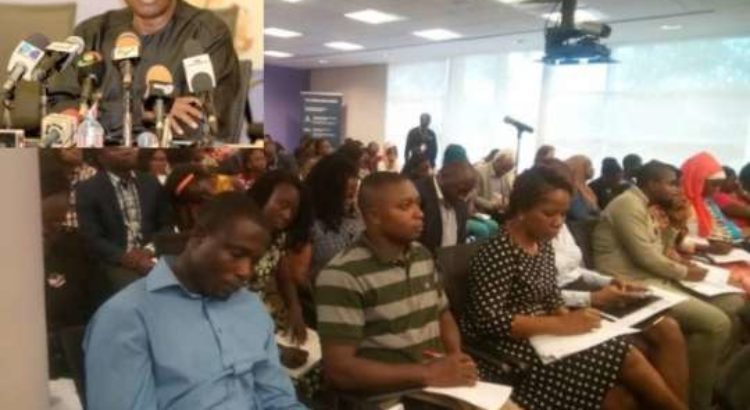Africa/Ghana/ghananewsagency.org/By Yaw Ansah/ Evelyn Anane, GNA
Resumen: El Sr. Henry Kerali, Director de País del Banco Mundial para Ghana, describió la Política de Escuelas Secundarias para Adultos Mayores (SHS, por sus siglas en inglés) gratuita de Ghana, como una iniciativa que les dará a las niñas la oportunidad de adquirir habilidades para el empleo antes de la reproducción. Dijo que tal empoderamiento los prepararía mejor para la maternidad, reduciría la alta tasa de natalidad, la mortalidad materna y aumentaría el Índice de Capital Humano (HCI). Según el Banco Mundial, el HCI consiste en el conocimiento, las habilidades y la salud que las personas acumulan a lo largo de sus vidas, lo que les permite darse cuenta de su potencial como miembros productivos de la sociedad. Bajo el tema: “Desafíos y oportunidades del capital humano africano”, se usó también para analizar aspectos destacados del Proyecto de Capital Humano de África del Banco Mundial (WBAHCP). Relató que el Banco, como parte de su esfuerzo por mejorar el índice de capital humano de Ghana, estaba implementando programas que incluyen protección social, habilidades, agua comunitaria y saneamiento para ayudar a Ghana a ponerse al día con sus pares, como Ruanda. El Sr. Kerali aseguró que el Banco apoyaría los programas de desarrollo de Ghana, como dar una segunda oportunidad a las personas que no podían acceder a la educación para que estuvieran equipadas con conocimientos y habilidades para impulsar al país a la HCI para que sea el mejor en África.
Mr Henry Kerali, World Bank Country Director for Ghana, has described Ghana’s Free Senior High School Policy (Free SHS) as an initiative that will give girls the chance to acquire employable skill sets before reproduction.
He said such empowerment would better prepare them for motherhood, reduces high birth rate, maternal mortality and boost the Human Capital Index (HCI).
The HCI according to World Bank, consist of the knowledge, skills and health that people accumulate throughout their lives enabling them to realise their potential as productive members of society.
Mr Kerali said this at a teleconferencing to launch a quarterly Africa Civil Society Organisation and Parliamentary Development Dialogue on Tuesday in Accra.
The dialogue, which would be a quarterly interactive programme among 16 African Countries, seeks to promote social inclusion, accountability and advocate for greater voices.
Under the theme: “African Human Capital Challenges and Opportunities”, was used to also discuss highlights of World Bank Africa Human Capital Project (WBAHCP).
He recounted that the Bank as part of effort to improve human capital index of Ghana was implementing programmes including social protection, skills, community water and sanitation to help enable Ghana to catch up with its peers such as Rwanda.
Mr Kerali gave an assurance that the Bank would support Ghana’s developmental programmes such as giving second chance to people who could not get access to education to be equipped with knowledge and skills to push the country up to the HCI to be the best in Africa.
Out of 100 per cent, Ghana achieved 44 per cent ranking 116 out of 157 countries in the HCI report, released in 2018 ranked.
The HCI report revealed that 95 out of 100 children in the country, survived up to age five while a child who started school at age four was expected to complete 11.6 years of school by their 18th birthday.
It noted further that across Ghana, 76 per cent of 15-year olds would survive until age 60.
It said although Ghana had enormous natural resource potential, the country had not been able to sustainably developed, because of the weak capacity of her human resource.
To reverse the trend, it suggested the need to invest in its human resource to imbibe the right innovation and technology that would help make the best use of the natural resources.
Fuente: http://www.ghananewsagency.org/education/free-shs-will-help-reduce-fertility-rate-henry-kerali-147465







 Users Today : 17
Users Today : 17 Total Users : 35460370
Total Users : 35460370 Views Today : 24
Views Today : 24 Total views : 3419124
Total views : 3419124